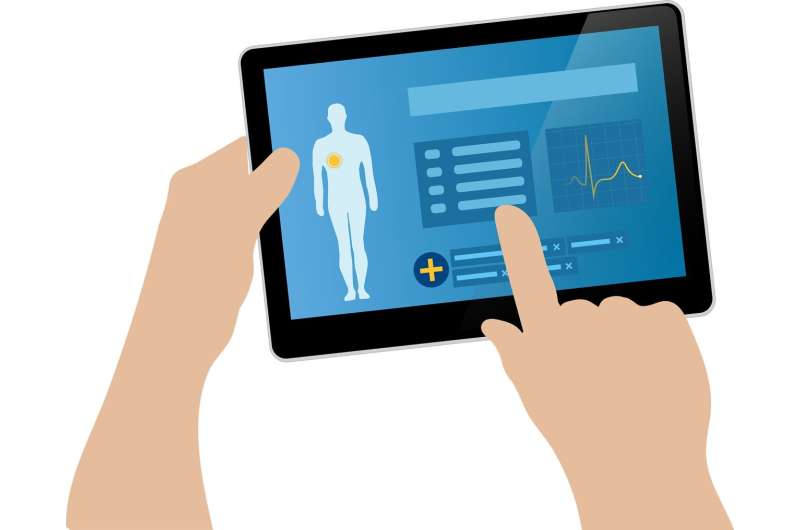This article has been reviewed according to Science X's editorial process and policies. Editors have highlighted the following attributes while ensuring the content's credibility:
fact-checked
peer-reviewed publication
trusted source
proofread
Clinical trial investigates using electronic alerts to help control blood pressure

Nudges from an electronic health record system reminding physicians to prescribe hypertension drugs to patients with chronic kidney disease led to improved blood pressure management, according to a clinical trial published in JAMA Internal Medicine.
Chronic kidney disease affects more than 35 million adults in the U.S., according to the Centers for Disease Control and Prevention. For patients with chronic kidney disease, hypertension is a key risk factor for adverse outcomes, such as kidney failure, cardiovascular events and death.
In the trial, investigators sought to understand if alerts from electronic health records systems recommending that patients with chronic kidney disease and uncontrolled high blood pressure be prescribed medications to lower it were effective, said Jeffrey Linder, '97 MD, MPH, the Michael A. Gertz Professor of Medicine and chief of General Internal Medicine in the Department of Medicine, who was a co-author of the study.
"We were trying to design something that fit into the electronic health record to remind doctors to mainly increase blood pressure medicines that have benefits which include preventing strokes and heart attacks in patients with chronic kidney disease," Linder said.
More than 2,000 patients and 170 primary care clinicians were included in the trial. Half of patients received their usual care, while physicians treating the other half received tailored, evidence-based recommendations from their electronic health records system.
Patients whose physicians had received the nudges reported a 14 mmHg drop in blood pressure, according to the study, significantly more than patients in the usual care group.
"We saw significant increases in use of blood pressure medicines and significant decreases in blood pressure itself that should, over the course of the subsequent years, result in fewer kidney and cardiovascular problems," Linder said.
Building intuitive alert systems into electronic health records can help physicians adhere to best practices, Linder said, and his laboratory will continue to study interventions designed around these alerts.
"This fits into the theme of research that I and my colleagues at Northwestern and beyond conduct around using the electronic health record to encourage the right care and discourage the wrong care," Linder said. "We're working on a trial now to discourage sleep medication use and encourage the use of cognitive behavioral therapy, which is less toxic and more effective than the commonly used sleep drugs."
More information: Lipika Samal et al, Clinical Decision Support for Hypertension Management in Chronic Kidney Disease, JAMA Internal Medicine (2024). DOI: 10.1001/jamainternmed.2023.8315




















